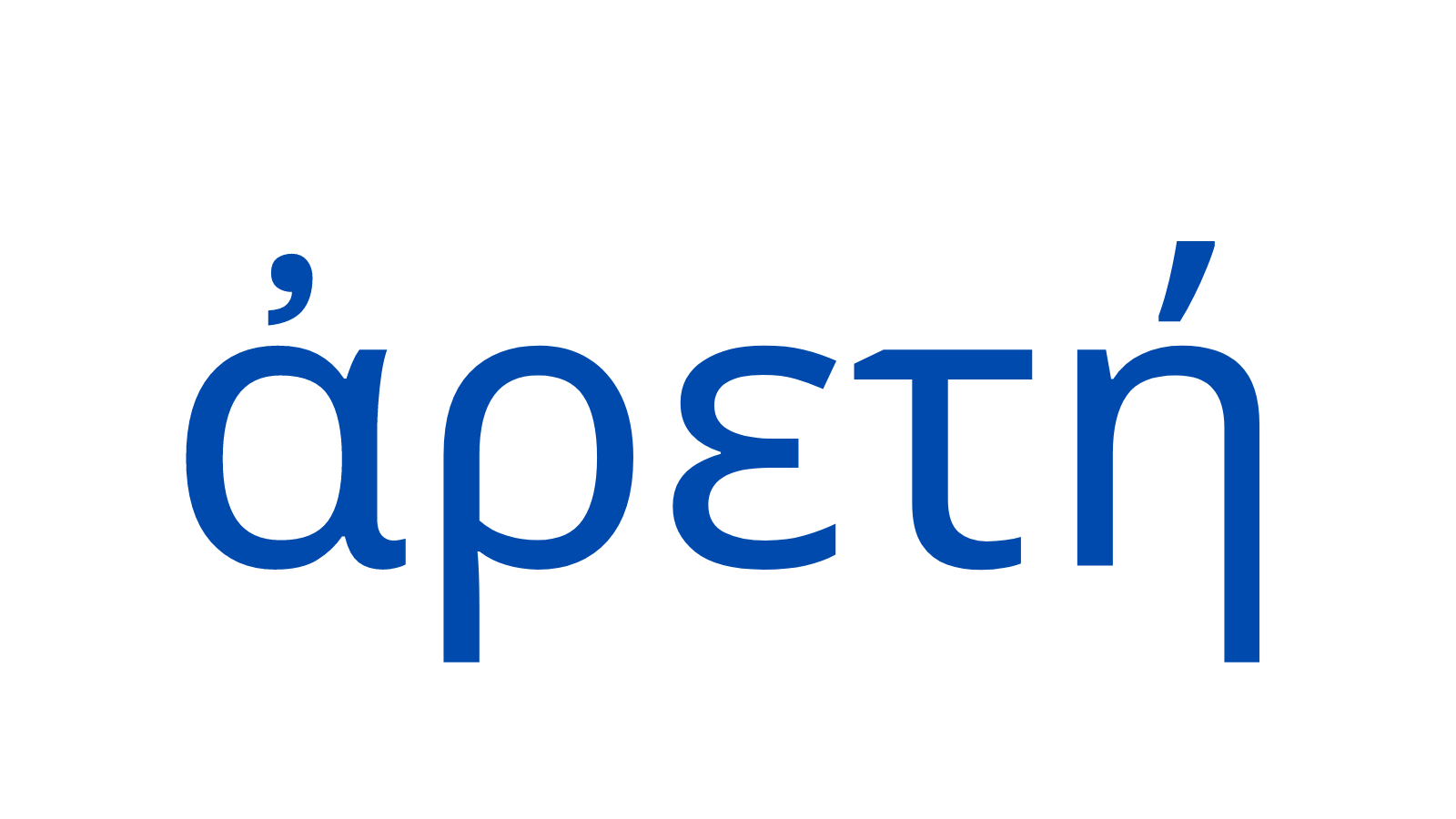This morning, I tried a new practice at the suggestion of my meditation teacher, Jonathan Gustin. When I first awoke, before getting out of bed, I recited a simple invocation, expressing gratitude that my soul was returned to my body for another day. The invocation was powerful, helping me appreciate what a gift it truly is to be alive and have the day that lies ahead. Arete is the essence of embracing that gift and demonstrating gratitude through your actions.
Arete Defined
Arete (pronounced ARE-uh-tay) is an Ancient Greek concept that originated with Plato and Aristotle. It translates roughly to virtue or excellence. It is sometimes spelled with an accent, areté. This has the upside of increasing the chance you’ll pronounce it correctly and the downside of forcing you to figure out how to type that on a keyboard (although my love of Brené Brown has helped me master that).
Aristotle spent a lot of time thinking and writing about what constitutes a life well-lived. In his Nichomachean Ethics, he wrote that the highest good was eudaimonia. It translates roughly to the state of having a good soul. We often translate this to “happiness,” but that translation does not do it justice.
How does one attain eudaimonia? Aristotle believed the path to eudaimonia lay in living your life with arete. When we live our lives with arete, we demonstrate excellence and virtue in every action. As arete enthusiast* Brian Johnson would say, arete is living our best lives from moment to moment to moment.
My Arete Origin Story
I read the Nichomachean Ethics in my first year of college, and I would love to tell you that’s when I learned about and embraced arete. Unfortunately, the concept didn’t sink in at that time. Perhaps I wasn’t the most disciplined student at the time (not embodying arete in my studies, we might say).
I first stumbled upon the term in a re-read of one of my all-time favorite books, Zen and the Art of Motorcycle Maintenance, by Robert Pirsig. As the protagonist reads about Plato, he recognizes that translating arete as “virtue” does not connect to what it meant in Ancient Greek:
“What moves the Greek warrior to deeds of heroism… is rather duty towards himself. He strives after that which we translate ‘virtue’ but is in Greek arete, ‘excellence’…”**
This concept struck a chord for me. I had been telling people my core value was happiness, but explaining I did not mean happiness in the sense that I always had a smile on my face. Happiness in the sense that I was living my best life (perhaps some of Aristotle’s eudaimonia sank in from college after all). As I read what Pirsig wrote, I realized arete captured the essence of “happiness” for me – it was living my life with excellence in all areas of life. Fully recognizing my potential. Living a life of integrity. Being healthy physically, mentally, and spiritually.
In the Declaration of Independence, when the United States formally declared its independence, the authors wrote of “…certain unalienable rights, that among these are Life, Liberty and the pursuit of Happiness.” The founding fathers of the United States were classically trained. I know they read Plato and Aristotle, and I suspect when they wrote “Pursuit of Happiness” they were referring to arete and eudaimonia and living our lives with excellence from moment to moment.
Embodying Arete
When my former company rebranded and renamed itself, one key lesson I learned was not to choose a name that was difficult for people to pronounce. When I launched my own company, I had to ignore that learned wisdom because I knew I wanted arete in the name, even if no one had heard of it or knew how to pronounce it. I commit myself to the pursuit of arete daily, hourly, and in each moment. In my coaching, I want to help others do the same.
I embody arete by reflecting on what makes a good life for me and committing myself to embody that life whenever possible. My core values align with this. By nurturing my social connections, prioritizing my physical, mental, and spiritual well-being, living my life with integrity, and investing in my learning and growth, I’m living a life of excellence. That’s my formula. Or at least it was.
Lately, I’ve written more about teliodosis than I have about arete. Teliodosis is a term of my own creation, and it’s the state of integrating doing and being. The doing aspect has been a strength of mine for decades. This is no surprise to me because arete is the essence of doing for me. It’s being intentional about my choices and actions, all supporting excellence. Arete serves me incredibly well, and I continue to embrace and embody it.
At the same time, I’m discovering the tremendous power that comes from allowing myself to simply be. When I pause from the intention and purposefulness of life and open myself up to the world around me, I tap into an entirely new body of wisdom.
My path to eudaimonia involves a healthy dose of arete integrated with an open state of being. When I’m there, it is pure bliss.
Putting It Into Practice
If the concepts of arete and teliodosis resonate with you, consider some of these previous blog posts to go deeper:
I am an executive coach and life coach with software executive roots in higher education and EdTech. I coach because I love to help others accelerate their growth as leaders and humans. I frequently write about #management, #leadership, #coaching, #neuroscience, and #arete.
If you would like to learn more, schedule time with me.
Want to comment? Join the conversation on LinkedIn.
* Brian’s enthusiasm for arete is so great he just published a book dedicated to helping you embody it – check out Areté: Activate Your Heroic Potential. You can read more about how I use the Heroic app here.
** You can find a more detailed analysis of Pirsig’s writings about arete here.

